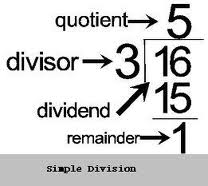Despite my many faults as a teacher I have always cared about my students, regardless of their age. When I was a 4th grade teacher I cared not only about whether they could read but about whether they chose to read. I cared about how they felt about learning math and I cared about whether they had friends and felt good about themselves. In these respects I am sure I was just like many elementary school teachers who see their role in a student's life as more than just a sage on the stage or a guide on the side.
I still care deeply about each student I work with whether an undergraduate or a graduate student. I want them unreservedly to be able to achieve their dreams of becoming teachers and beyond; several of the students I worked with many years ago are now school principals. I care about the development of their knowledge, understanding and skills; about the development of the dispositions required of being a teacher. I also care that my students care too which is where the conflict of caring can arise.
Every now and then, and it doesn't happen very often, I work with a student who doesn't seem to have this sense of caring. This can manifest itself in a lack of caring about their own well being in terms of grades, attendance at meetings, commitment to field placement experiences or the subject matter of teaching. Sometimes a student makes the wrong choices, misses class too often, doesn't complete assignments on time or simply doesn't appear to care about becoming a teacher. In these rare cases the conflict of caring is created because I also care about my profession, I care about the children who will be taught by our graduates and the general quality of education. I don't feel I can recommend someone for a teacher license who doesn't share this sense of caring about themselves and others in the context of teaching. Sometimes failure to become a teacher can be a reality.
This conflict of caring doesn't mean one stops caring about the student. What it does mean is that we have to find a way to resolve the conflict. Perhaps there is something other than teaching but still related to education that elicits the student's caring? To do this we help students identify alternative career paths and, perhaps, ways they can still achieve their goals at a later date.
I still care deeply about each student I work with whether an undergraduate or a graduate student. I want them unreservedly to be able to achieve their dreams of becoming teachers and beyond; several of the students I worked with many years ago are now school principals. I care about the development of their knowledge, understanding and skills; about the development of the dispositions required of being a teacher. I also care that my students care too which is where the conflict of caring can arise.
Every now and then, and it doesn't happen very often, I work with a student who doesn't seem to have this sense of caring. This can manifest itself in a lack of caring about their own well being in terms of grades, attendance at meetings, commitment to field placement experiences or the subject matter of teaching. Sometimes a student makes the wrong choices, misses class too often, doesn't complete assignments on time or simply doesn't appear to care about becoming a teacher. In these rare cases the conflict of caring is created because I also care about my profession, I care about the children who will be taught by our graduates and the general quality of education. I don't feel I can recommend someone for a teacher license who doesn't share this sense of caring about themselves and others in the context of teaching. Sometimes failure to become a teacher can be a reality.
This conflict of caring doesn't mean one stops caring about the student. What it does mean is that we have to find a way to resolve the conflict. Perhaps there is something other than teaching but still related to education that elicits the student's caring? To do this we help students identify alternative career paths and, perhaps, ways they can still achieve their goals at a later date.


.bmp)












